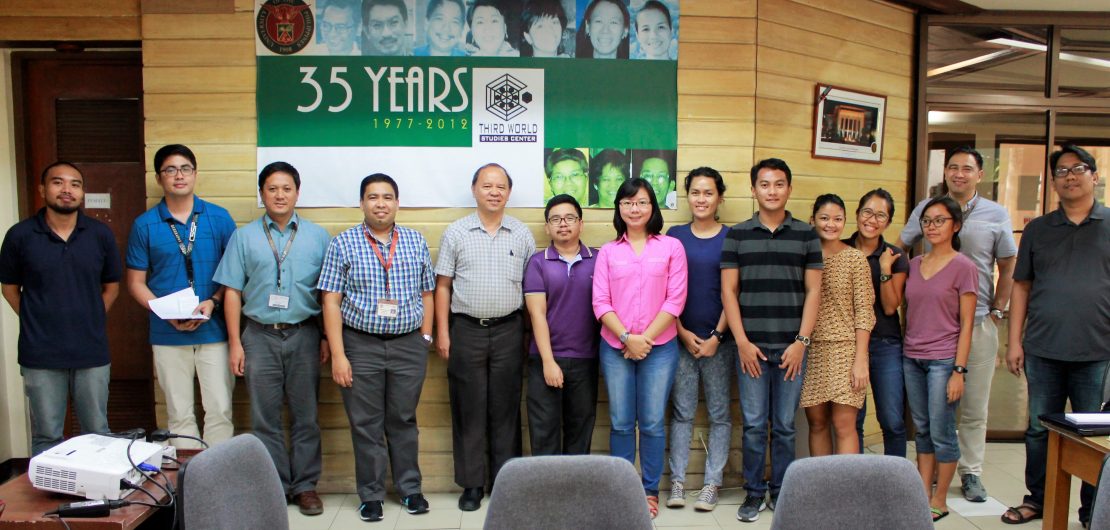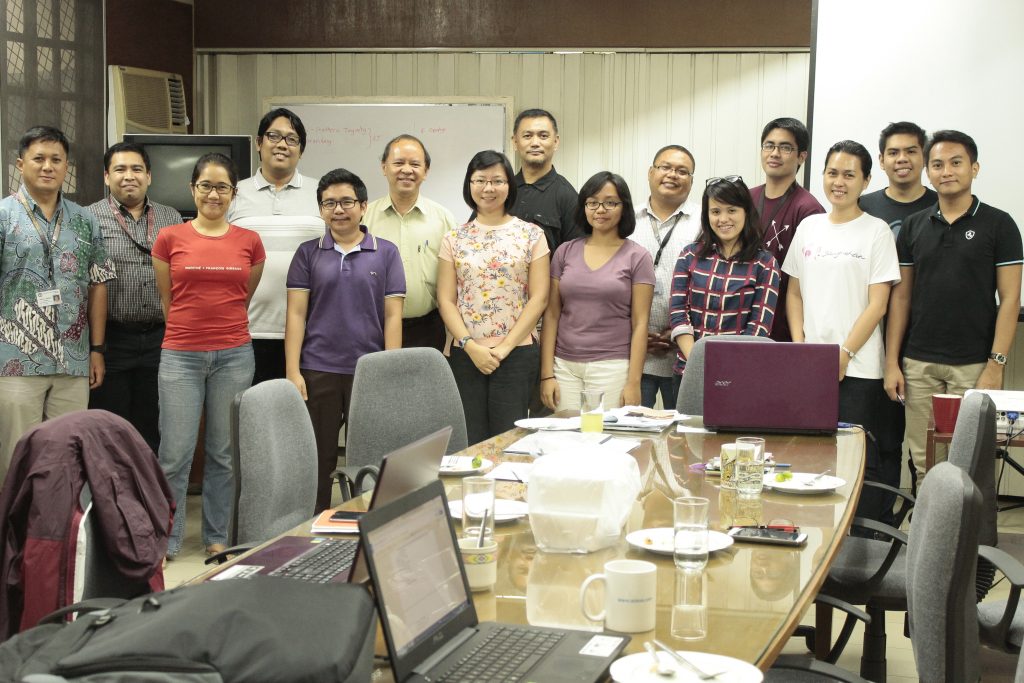
About the Program
The study, though largely historical in approach and structure, has drawn from the disciplines of history, geography, transportation studies, and political economy to put together a comprehensive and critical survey of mass transit plans for (Metro) Manila, focusing in particular on the rail network that services the metropolis. This is evidenced by the institutions and academics that have come together for this research project, namely those from the Third World Studies Center, the Department of History, the Department of Geography, and the National Center for Transportation Studies—all from the University of the Philippines Diliman.
Broadly, the research has been informed by a particular understanding of the political economy of ideas and institutions. This particular strand of political economy relies on the critical examination of the idea versus interest continuum and how this contrasting, yet linked, understanding on what drives economic, technocratic, and public policymaking shape the interpretation and implementation of select ideas regarding mass transit planning (Campbell 1998; Steinmo 2008). The immediate focus on plans and its eventual (non-)execution aims to highlight the varied contexts (social, economic, cultural, political, and even technological) that configured the present-day mass transit system in Metro Manila.
The first priority of the research was to identify, locate, and evaluate all plans related to mass transit—from the tranvia in cosmopolitan Manila at the end of the nineteenth century to the present light- and heavy-rail transits of Metropolitan Manila. Next was a genealogy of contexts: Who proposed what to whom? What did these proposals lead to? How were these plans evaluated by those in positions to make them possible? Why were those built, built the way they were? How were they built and by whom? What sections of the plans were relegated to the dustbin of history? What and who influenced those who made the plans? Those with the power and finances to make them possible, what were in their minds when they decided to build the mass transit systems in Metro Manila? Was it all a question of money and influence, of market efficiency, and not of public service? These questions have not fully been explored before and answering it, as is the intent of the project, will give a deeper context to the present -day problem in mass transit in Metro Manila.
The research, however, did not intend to end its close scrutiny of mass transit plans and its contexts with a plan to end all plans. Instead, it will serve as a tightly-knit series of academic critiques of the current mass transit predicament in Metro Manila.
Acknowledgement
This work was funded by the University of the Philippines System Emerging Inter-Disciplinary Research Program (OVPAA EIDR-06-008).
Dr. Ricardo Jose, Program Leader, UP Third World Studies Center and History Department
Elinor May Cruz, Program Manager, UP Third World Studies Center
Hannah Joy Germinal, Administrative Assistant
Project 1. A history of the railway systems from colonial Manila (1879) up to the present Metropolitan Manila (2014) as gleaned from plans and the built infrastructures
The problem of railway transportation is a staple news item in mainstream media reduced to bite-size information/sound bites that typically reinforce standard beliefs and the status quo—that the railway transportation problem is indeed a problem, that funding will never be enough, that competing interests will never arrive at a resolution in the interest of the public, etc. This project aimed to document the planning history of railway transportation planning in the country to address this knowledge gap across all stakeholders and hopefully steer public dismay, not towards more finger pointing, but a systematic and grounded understanding of railway transportation planning and broadly how lives and landscapes have been impacted by and continue to impact on the best-laid plans of land and transportation bureaucrats and technocrats as attested by its history.
Prof. Karl Poblador, Co-Project Leader, UP History Department1
Miguel Paolo Reyes, Co-Project Leader, UP Third World Studies Center
Ramon Bandong Jr. and Judith Camille Rosette, Research Assistants
1 Prof. Marco Stefan Lagman, from UP Geography Department, served as Co-Project Leader from October 2015 to February 2017. Keith Gerard Daguio served as his research assistant from October 2015 to April 2017.
Project 2: A GIS rendering of the evolution of the railway system in Metro Manila as well as those which were put into plan but remains unexecuted
The history of Metro Manila’s railway system can be better appreciated if all these implemented projects and proposed plans are rendered visually through maps, along with the demographic and land use changes in Metro Manila and nearby towns. At present, many opinions from politicians, policy-makers and citizens about Metro Manila’s mass transit problems do not seem to be based on the history of the actual rail projects and the plans drawn up decades ago that were never implemented. This project aimed to create a visual rendering of the rail projects that have been constructed as well as the mass transit projects that could have been implemented. In relating all layers of mass transport, demographic, and land use change data in map form, the project could give a more nuanced idea of how the implemented and planned rail projects sought or failed to address the needs of an expanding metropolis.
Dr. Daniel Mabazza, Project Leader, UP Geography Department
Johnson Damian, GIS Specialist2
Leslie Dolalas, Research Assistant
2Jonathan Villasper served as Senior GIS Specialist from October 2015 to February 2017.
Project 3: A critical transportation engineering review of the mass transit system in Metro Manila, focusing on railways
Metro Manila’s transportation system is one that has been described as very inefficient, leading to billions of economic losses each day. This inefficiency is due mainly to the poor planning and development of the transport system, particularly the public mass transportation. This project aimed to conduct the technical review and analysis of transport plans and projects in Metro Manila in the last 40+ years in the hopes of providing a framework for planning and development of mass transit systems for Metro Manila and beyond (Mega Manila).The project employed the co-benefits approach in assessing the impacts of transport systems to air quality, fuel consumption, safety, traffic congestion, noise, and others. The review and analysis performed were in the context of the principles of environmentally sustainable transport for an inclusive, energy-efficient, and low emission/carbon transport.
Dr. Jose Regin Regidor, Project Leader, UP National Center for Transportation Studies
Dominic Aloc, Research Assistant
Project 4: An oral history on select bureaucrats, technocrats, and academics who were involved in planning, designing, funding, and building the Metropolitan Manila mass transit system and an audio-visual history of the railway systems of Metro Manila
This project aimed to offer to the public voices and faces of people who, most of whom, have worked only in the background, away from the political limelight, yet were instrumental in crafting the plans that led to the current mass transit system in Metro Manila. The oral history interviews elicited information and experiences that not only supplemented official public mass transit planning documents and histories, but served as stand-alone narratives with their own intrinsic value as they relate to economic planning, planning history, development of transport engineering in the Philippines, and the urbanization of Metro Manila. Moreover, the audio-visual history in the form of a video documentary addressed the public need for compelling stories. It tells the story of the competing ideas and interests at work in the railway transportation phenomenon in Metro Manila that hitherto chart the shape and speed of things to come.
Emerald Flaviano, Co-Project Leader, UP Third World Studies Center
Joel F. Ariate Jr., Co-Project Leader, UP Third World Studies Center
Ivy Dianne Olivan, Giselle Joyce Nadine de la Peña, and Manuel San Mateo IV, Research Assistants3
3 Jesse Rey Baban (MA Media studies student) and Ruben Jeffrey Asuncion (MA History student) were the first research assistants for the oral history component.
Contact information
Elinor May Cruz
Program Manager
eidr.masstransit@up.edu.ph
